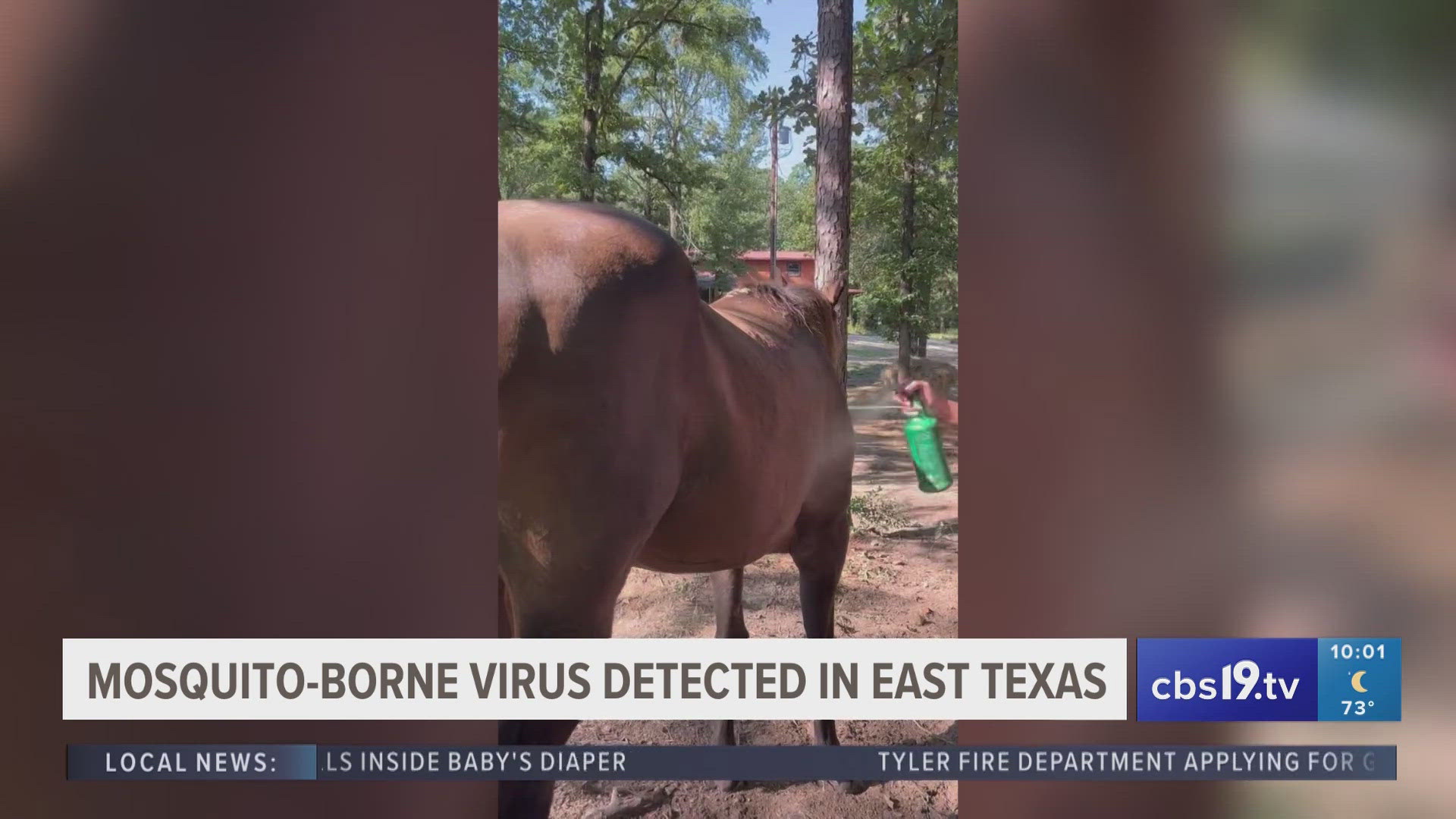TYLER, Texas — Mosquitos are insects that pretty much no one likes, especially since some can carry deadly diseases.
The mosquito-borne eastern equine encephalitis virus was detected in two horses in Houston County. While this is a rare but serious disease, Jessica Morris, founder of Northeast Texas Wild Tribe, said there are many techniques they use in order to keep horses and livestock safe.
"It makes me pretty worried, because a lot of diseases are similar to that. Then once your horse gets them, there's really nothing that you can do for them. They have certain premises for horses to go on like that so that's one option. The other is putting them down. So, there's not many options for you if your horse contracts a disease like that," Morris said.
Morris said one of her top priorities is to keep those blood suckers away.
"We use this permethrin. This stuff is amazing for keeping the flies and the mosquitoes away, and it doesn't hurt the livestock. And then we've got this for any open wounds. Open wounds on livestock always attracts bugs, flies, mosquitoes, anything that sucks blood. And so we want to keep those covered up," Morris said.
Meanwhile to keep people safe from the encephalitis virus, Northeast Texas Public Health District's Russell Hopkins said if someone is doing anything for West Nile or any of the other mosquito-borne illnesses, they're doing the right thing.
That means to remember the four D’s: drain the water, wear dark clothes and avoid dusk and dawn.
"The main thing is recognizing these symptoms are similar to West Nile. There are two kinds of presentations where headache (and) not feeling well is the most common. But there's also a severe presentation where you have encephalitis, swelling on the brain and potentially life-threatening cases," Hopkins said.
Hopkins said this disease is particularly fatal in humans with a 33% fatality rate. So, recognizing it early and vaccinating animals are both important.
"East Texas is always going to have some number of cases, and always going to have a potential exposure to humans as part of everyday preparedness. You can wrap up and wrap this up in your other preparations for keeping your animals safe and healthy from things like heart worms or fevers in your horse's cattle," Hopkins said.
Morris emphasized it's really important to make sure people are doing what they can to keep their horse from getting these diseases.
"Because once they get it, there's nothing that you can do," Morris said.

